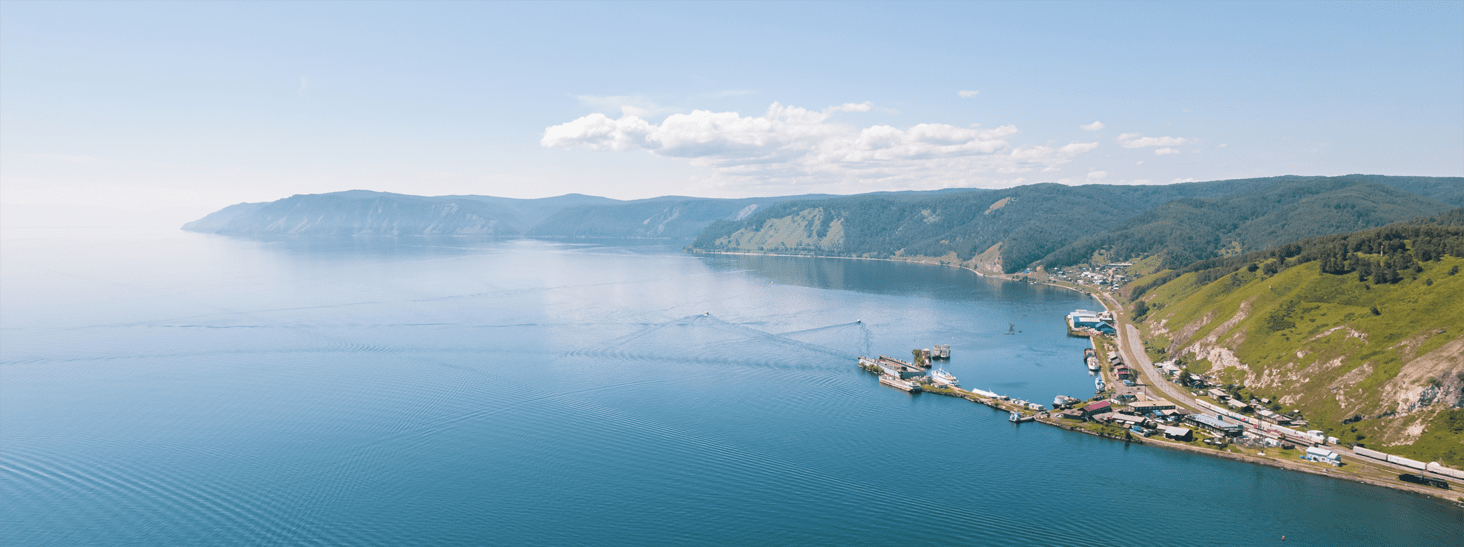Biodiversity conservation
As part of its environmental effort, Russian Railways places a special focus on the development and implementation of measures to preserve natural ecosystems and flora and fauna, primarily rare and protected species.
Within its biodiversity conservation steps, Russian Railways carries out restoration and compensation measures in accordance with design specifications and estimates for construction and reconstruction projects. On top of that, the Company engages in charitable initiatives aimed at preserving rare, endangered and Red Book‑listed species. These initiatives include installing artificial nesting sites, feeders, and salt licks, as well as setting up camera traps. The Company also provides annual support for the conservation of the Far Eastern leopard and Amur tiger.
Educational activities play a major role in Russian Railways' biodiversity conservation efforts. They include organising photo exhibitions at railway stations across the country, disseminating information to passengers through audio and video messages, displaying educational posters, and developing ecotourism projects.
Employees, students from Russian Railways' educational institutions, young talents enrolled in children’s railways, and corporate volunteers actively engage in all environmental education initiatives, ecosystem preservation activities (such as campaigns and clean‑up events), and biodiversity conservation projects. In 2023, Russian Railways employees planted over 430,000 young trees as part of these campaigns and events.
A priority focus for conservation measures is their implementation in specially protected natural areas and Lake Baikal’s natural territory.
On 2 May 2023, Russian Railways officially unveiled the Bobrenok (Little Beaver) themed train, operating on the route from Voronezh to the Voronezh Natural Reserve, which is home to Russia's only beaver nursery.
The project aims to promote domestic eco‑tourism and support the reserve. To enhance visitor experience, Russian Railways established a new transport stop, constructed a passenger platform and a viewing area, developed a nature trail, and installed wooden sculptures of animals native to the reserve.
The Voronezh Natural Reserve offers visitors an opportunity to observe diverse wildlife, including roe deer, wolves, foxes, and beavers, in their natural habitat. The reserve also features several museums and nature trails.
The choice of destination for this new tourist route is particularly fitting, as 2023 marks the centenary of the Voronezh Natural Reserve. Over the past century, the reserve has played a crucial role in beaver research and population restoration efforts across Russia. In 1985, UNESCO added the reserve to its World Network of Biosphere Reserves.
Environmental conservation in Lake Baikal’s natural territory
In 2023, we carried out the following initiatives under the Action Plan to protect Lake Baikal’s natural territory:
- supported comprehensive environmental surveys of the Talovskoye lake and wetland ecosystem in the Sludyansky District, resulting in the site's recognition as a regional natural monument;
- provided assistance to protected areas in the Irkutsk Region and the Republic of Buryatia: purchased equipment for protection and patrols (11 GPS navigators, 31 dashboard cameras, and 15 camera traps for wildlife monitoring), supplied 750 kg of vitamin and mineral supplementary feed for ungulates, and installed an observation tower and eight awareness raising information boards;
- using mobile environmental stations, conducted over 13,000 environmental studies (on natural water, air, soil, and noise) as part of industrial environmental control at the East‑Siberian Railway units and environmental monitoring at construction and reconstruction sites within the central zone of Lake Baikal’s natural territory;
- published atmospheric air monitoring data on Roshydromet's publicly available portal;
- installed modular wastewater treatment facilities at the Sharyzhalgai station of the Circum‑Baikal Railway;
- implemented separate waste collection in electric trains, stations, and stops along the Circum‑Baikal Railway, utilising hydraulic presses for waste preparation;
- in July, hosted a working visit by State Duma deputies, members of the Baikal inter‑factional working group, and the Committee on Ownership, Land and Property Relations, who positively assessed Russian Railways' environmental compliance efforts;
- in September, organised a tree‑planting initiative, with volunteers from the East‑Siberian Railway and Irkutsk State University of Railway Transport planting 15,000 rootballed seedlings of the Scots pine across 7.5 ha in forests of Lake Baikal’s natural territory;
- arranged photo exhibitions of Red Book‑listed plants and animals from the Republic of Buryatia and Irkutsk Region at the Zima, Irkutsk‑Passazhirsky, and Ulan‑Ude railway stations;
- updated the interactive ecological exposition dedicated to Lake Baikal at the Slyudyanka railway station.

- over 200 railway workers volunteering to participate in the event;
- 70 m of garbage removed from the coastal area along the Circum‑Baikal Railway;
- Lake Baikal shoreline improved in the Slyudyansky District of the Irkutsk Region;
- rubbish collected during the campaign safely transported to a container site for temporary collection of municipal solid waste in the Kultuk settlement.
 The comprehensive environmental surveys of the Talovskoye lake and wetland ecosystem are a great example of the positive outcomes achievable when modern businesses collaborate with governmental bodies, public organisations, and scientific institutions to preserve Lake Baikal with its unique natural features and ecological significance. The South Baikal migratory corridor has effectively been granted the status of a specially protected area. This corridor is crucial for 36 bird species listed in the Red Books of both the Irkutsk Region and Russia. The new protected status will help safeguard their natural habitat and, consequently, contribute to the growth of populations.Vyacheslav Zdor Head of the Environmental Protection Centre at the East‑Siberian Railway
The comprehensive environmental surveys of the Talovskoye lake and wetland ecosystem are a great example of the positive outcomes achievable when modern businesses collaborate with governmental bodies, public organisations, and scientific institutions to preserve Lake Baikal with its unique natural features and ecological significance. The South Baikal migratory corridor has effectively been granted the status of a specially protected area. This corridor is crucial for 36 bird species listed in the Red Books of both the Irkutsk Region and Russia. The new protected status will help safeguard their natural habitat and, consequently, contribute to the growth of populations.Vyacheslav Zdor Head of the Environmental Protection Centre at the East‑Siberian Railway